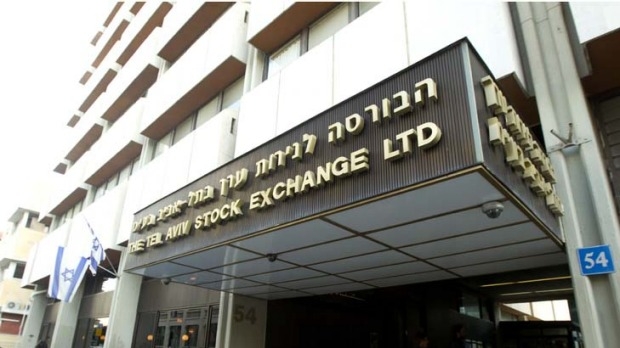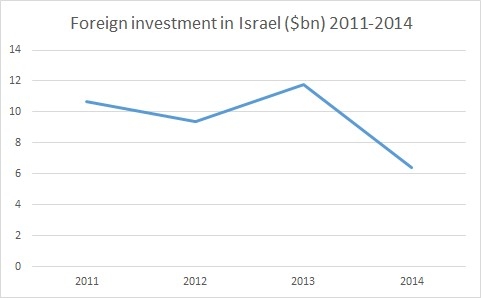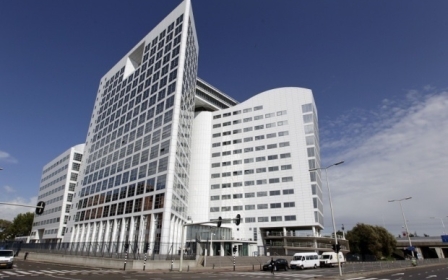Foreign investment in Israel drops by almost half in 2014

Foreign investment in Israel fell by nearly half in 2014 compared to the previous year’s figures, a new UN report found this week.
This year’s World Investment Report, prepared annually by the UN Conference on Trade and Development, reported on Wednesday that Israel attracted $6.4bn in foreign investment over the course of 2014, compared with $11.8bn the previous year – a drop of around 46 percent.
The report found a global trend of decreased foreign investment, though numbers were down just 16 percent on 2013 figures.
There is little concrete evidence to explain the sharper decline in Israel, although one of the report’s authors suggested that an international boycott campaign against Israel, combined with negative press surrounding last summer’s Gaza war, could have a role to play.
Ronny Maros, a lecturer in finance and one of the report’s authors, told Israeli news site Ynet on Wednesday that "Operation Protective Edge and the boycotts Israel is facing" are behind the drop, using the Israeli military’s codename for the 51-day military campaign in Gaza last summer.
Since 2005 Israel has been targeted by the Boycott, Divestment and Sanctions (BDS) movement, which aims to further the Palestinian cause by increasing financial and diplomatic pressure on Israel.
The movement has been picking up steam ahead of its tenth anniversary next month, with growing numbers of institutions like churches and universities mulling joining the boycott.
Israeli Prime Minister Benjamin Netanyahu has been outspoken in his opposition to the campaign, recently drawing parallels between the current international boycott movement and the persecution of Jewish communities in Nazi Germany.
Israel has one of the world’s most lax policies towards foreign investment, with the Index of Economic Freedom ranking it as the 33rd freest economy on a global scale.
Foreign investments typically account for less than 10 percent of Israel’s gross domestic product.
The US has historically been one of the biggest foreign investors in Israel, typically providing some 30 percent of inward cash flows.
Middle East Eye propose une couverture et une analyse indépendantes et incomparables du Moyen-Orient, de l’Afrique du Nord et d’autres régions du monde. Pour en savoir plus sur la reprise de ce contenu et les frais qui s’appliquent, veuillez remplir ce formulaire [en anglais]. Pour en savoir plus sur MEE, cliquez ici [en anglais].





